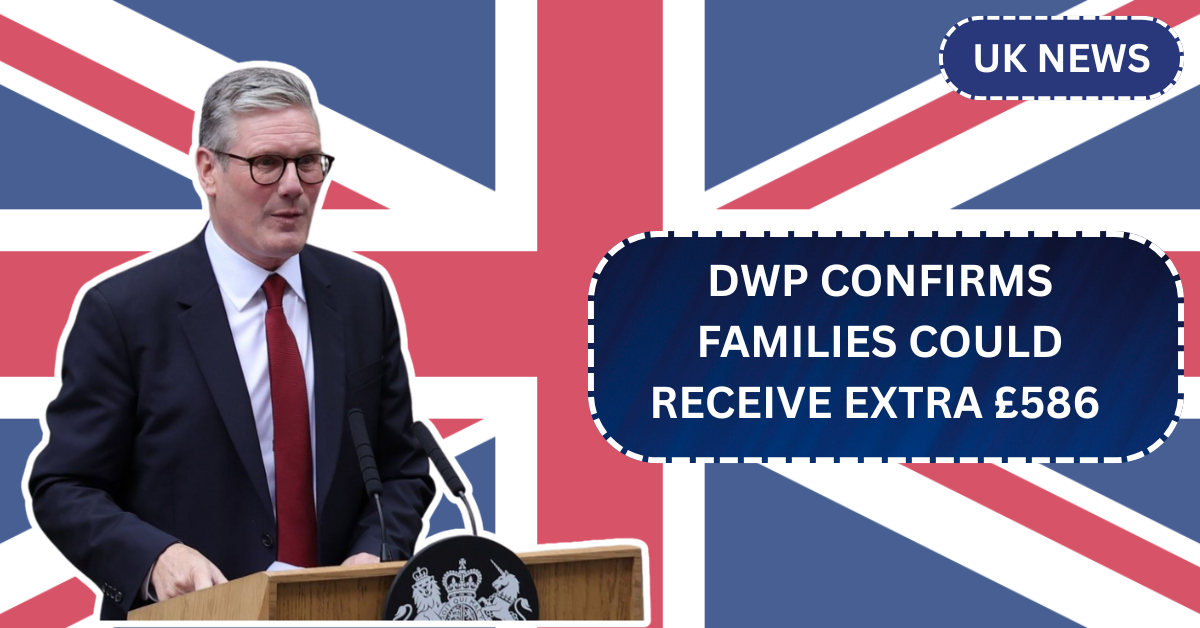The UK government is considering a major change in the welfare system that could put hundreds of extra pounds into the hands of struggling families every month. The Department for Work and Pensions (DWP) has hinted that eligible households could soon receive an additional £586 per month, as part of a potential overhaul of current benefits.
What’s Changing?
The government is reportedly reviewing how welfare payments are given to families, particularly those with children, in an effort to reduce poverty and help households manage the rising cost of living. This review is part of a wider conversation about whether the current Universal Credit system is enough to support people, especially low-income families.
The suggested change could mean that thousands of parents may get extra financial help every month if new rules come into place.
Who Might Get the Extra Money?
While final decisions haven’t been made yet, the DWP has shared that the focus will likely be on families with children under five, single parents, and low-income households.
Here’s who might benefit the most:
- Families with young children
- Single-parent households
- Households already receiving Universal Credit
- Working families earning below a certain income level
In some cases, the extra £586 per month could be on top of existing Universal Credit payments, depending on the family’s current circumstances.
Why Now?
Rising food prices, energy bills, and housing costs have made it harder for families to make ends meet. Many charities and social justice groups have called on the government to act quickly and increase support to prevent more children from falling into poverty.
The move comes after pressure from organisations like The Joseph Rowntree Foundation and Child Poverty Action Group, who have been warning that current benefits do not match the reality of today’s living costs.
According to reports, ministers are now considering whether more targeted help is needed – especially for those who are working but still living below the poverty line.
How Would the £586 Be Calculated?
Although full details have not been confirmed, experts believe the payment amount may be based on:
- Number of children in the household
- Age of the children
- Work status of the parents
- Household income levels
The goal is to bridge the gap between working wages and the cost of raising children, especially in today’s expensive economy.
Will This Affect Universal Credit?
At this stage, the DWP has not confirmed if this extra £586 will be a separate payment or if it will be added into existing Universal Credit support. However, sources say that any changes will likely build upon the current system rather than replace it completely.
A DWP spokesperson said the government is “constantly reviewing” how to better support vulnerable families and that “all options are on the table.”
This includes looking at:
- Child benefit increases
- Additional Universal Credit top-ups
- New payments targeted at families with toddlers or preschoolers
When Could This Happen?
Right now, this proposed welfare increase is still under discussion, so no official start date has been given. It’s possible that any changes will be announced during the next Budget or autumn financial review.
If approved, the rollout could begin as early as next year, though that would depend on how quickly Parliament moves forward with the plan.
For now, families are advised to:
- Keep an eye on official DWP announcements
- Check if they are already receiving all the benefits they’re entitled to
- Use online benefit calculators to estimate what support they might qualify for in future
Public Reaction
The idea of an extra £586 a month has been welcomed by campaigners, but some worry that the promise won’t become reality unless the government commits enough funding.
Many families say that even a few hundred pounds more each month would make a big difference, especially for paying for food, clothing, rent, and childcare.
However, some critics argue that rather than introducing new payments, the government should focus on fixing delays and errors in the current system.
Final Thoughts
If approved, this new DWP proposal could bring much-needed relief to families who are struggling to cope with inflation and high living costs. While nothing is confirmed yet, the government’s willingness to consider higher monthly support is a positive sign.
More updates are expected in the coming months. For now, families should stay informed and explore existing support options while the plans are being reviewed.




